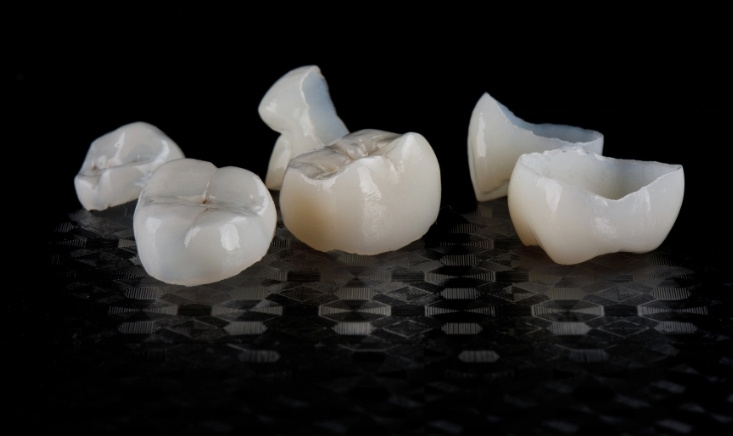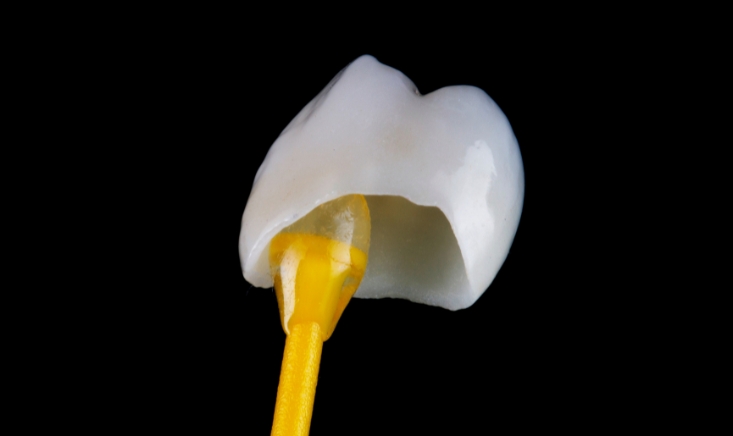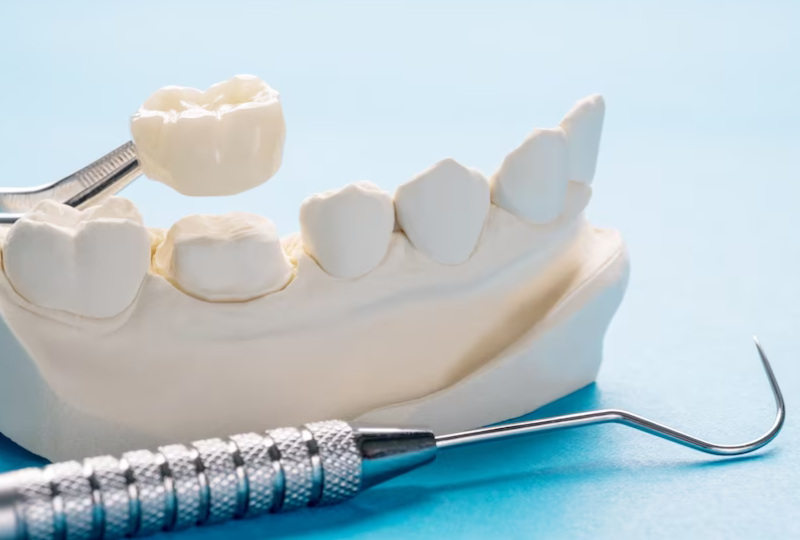2200 AW Grimes Blvd, Suite 100 Round Rock, TX 78665
The Impact of Dental Crowns on Oral Health: What You Should Know

Dental crowns are a popular solution for restoring damaged teeth, offering both cosmetic and functional benefits. When a tooth is weakened by decay, trauma, or large fillings, a dental crown can provide a durable protective cover. Not only do dental crowns improve the appearance of a tooth, but they also help maintain its strength and functionality. However, before opting for a dental crown, it’s essential to understand its impact on your oral health.
In this blog, we will explore the various ways dental crowns contribute to your overall oral health and why they are a worthwhile investment. Whether you’re considering getting a crown or already have one, knowing how they affect your dental health can help you make informed decisions.
What Are Dental Crowns?
Dental crowns are custom-made caps designed to fit over a damaged or decayed tooth. They restore the tooth’s size, shape, and function. Crowns are often made from materials like porcelain, metal, or a combination of both, providing a reliable solution for teeth that have been weakened due to decay or injury.
When a tooth is too damaged to function properly, a crown can prevent further damage and protect the remaining tooth structure. This is especially important for maintaining your tooth’s health and preventing the need for more extensive treatments in the future.
How Dental Crowns Benefit Your Oral Health?
Here are some of the key benefits of crowns for your oral health:
- Prevents Further Damage: Cowns act as a protective shield over a weakened tooth, preventing it from breaking or cracking further. They provide a layer of strength that helps maintain the structural integrity of the tooth.
- Restores Functionality: When a tooth is severely decayed or damaged, it can become painful and difficult to use for chewing. A crown restores the tooth’s ability to function properly, allowing you to eat and speak without discomfort.
- Improves Appearance: Crowns not only restore the function of the tooth but also enhance its aesthetic appeal. If the tooth is discolored or cracked, a crown can cover it and blend with the natural teeth, giving you a more uniform smile.
- Durability and Longevity: Dentists design crowns to last for many years, making them a reliable solution for tooth restoration. With proper care, a dental crown can protect your tooth for decades, helping you avoid the need for more extensive procedures.
Maintaining Oral Health with Dental Crowns
While dental crowns are an excellent solution for restoring damaged teeth, it’s essential to maintain good oral hygiene to ensure their longevity and effectiveness. Here’s how to keep your crown and the surrounding teeth healthy:
- Brush Regularly: Brush your teeth at least twice a day, especially around the crown area, to remove plaque buildup. Use a soft-bristled toothbrush to avoid damaging the crown.
- Floss Daily: Flossing helps remove food particles and plaque from between your teeth and around the crown. This prevents gum disease and maintains oral health.
- Avoid Hard Foods: Crowns can withstand a lot of pressure, but biting down on extremely hard foods, like ice or hard candy, can cause them to crack or become loose. Be mindful of the foods you consume.
- Regular Dental Visits: Schedule regular check-ups with your dentist to ensure that the crown remains in good condition and that your overall oral health is in check.
Potential Issues with Dental Crowns
Although crowns offer many benefits, there are some potential issues to be aware of:
- Crown Loosening or Falling Out: Over time, crowns can become loose or even fall out if not properly maintained. This can occur due to wear and tear, or if the underlying tooth structure deteriorates.
- Tooth Sensitivity: After the placement of a dental crown, you may experience some tooth sensitivity. This can happen if the seal on the tooth underneath is incomplete or if the crown doesn’t fit perfectly.
- Gum Recession: In rare cases, gum recession around the crown may occur, which can expose part of the tooth or crown. If you notice this happening, consult with your dentist for advice.
If you have a damaged or weakened tooth, a dental crown may be the ideal solution to restore both its appearance and functionality. Crowns are a versatile option, offering long-term protection and durability. However, it’s essential to work closely with your dentist to determine if this treatment is right for your specific needs. Dental crowns can offer a wealth of benefits, but only a thorough examination can ensure they are the best choice for your oral health.
By maintaining good oral hygiene and following your dentist’s advice, dental crowns can significantly enhance your overall dental health for years to come.



